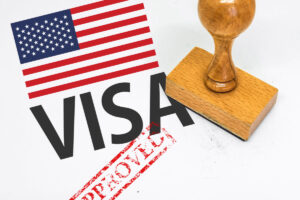Last Updated on November 10, 2022 by Anda Malescu
While the exact economic consequences of the Coronavirus (COVID-19) pandemic are yet unknown, firms in the United States and around the world are already considering the effects on their business operations, contracts, workforce and employees’ immigration status and recovery options among others. The COVID-19 crisis is fluid and rapidly changing, requiring
We advise companies in Florida on legal issues related the effects of Coronavirus, including:
- Contracts and Force Majeure Clauses: is Coronavirus outbreak a force majeure? Companies usually control for the risk of unanticipated business interruptions due to disaster through contracts and insurance policies. In Florida and the United States generally, most contracts contain a force majeure clause. A force majeure clause allows parties to a contract to terminate or suspend their obligations due to circumstances beyond the control of the parties. The force majeure clauses are common in contracts, including lease agreements, sale purchase agreements, service agreements, merger and acquisition agreements and others, and provide a road map in times of crisis. However, not all force majeure clauses or contracts are the same. Furthermore, the application of force majeure to the Coronavirus outbreak will depend significantly on the language of the parties’ contracts. And because the wording varies from contract to contract and clauses can be interpreted differently based on the law that governs, it is important to contact your business attorney to discuss your specific circumstance.
However, if the contract governed under Florida law does not contain a force majeure clause to invoke it during COVID-19, then other options may be available under Florida law to excuse performing the obligations under the contract, such as impossibility/impracticability or frustration of purpose.
- Contracts and other options to excuse performing obligations under Florida contracts due to COVID-19 aside from Force Majeure Clauses: Impossibility/ Impracticability and Frustration of Purpose.
If the Florida contract does not contain a force majeure clause or the clause cannot be used successfully, then companies can consider other options such as impossibility/ impracticability or frustration of purpose before seeking to excuse performance of their obligations under the contract.
Impossibility of performance covers situations where the purpose of the contract has become impossible to perform on the side of one of the parties to the contract. However, Florida courts are not inclined to excuse performance when the purpose of the contract is not impossible to perform but is inconvenient to the parties or the contract is not profitable and does not result in profits to one of the parties. Additionally, the impossibility of performance argument cannot be used when the risk was foreseeable at the time the parties entered into the contract and could have been included as an express provision in the contract. It is unlikely today that Florida courts will find that COVID-19 pandemic was a foreseeable risk, but such cases are yet to be addressed and decided by Florida courts and there is little guidance on the topic.
Frustration of purpose include situations where one of the parties to the contract finds out that the purpose for which it entered into the agreement, and the purpose was known to the other party, was frustrated because of failure of consideration or impossibility to perform the contract on the side of the other party. However, in Florida a frustration of purpose defense does not apply when the particular event was reasonably foreseeable and could have and should have been included as an express provision in the contract. Similar to impossibility/impracticability of performance defense, Florida courts have not yet addressed frustration of purpose of contracts due to COVID-19 pandemic. However, in La Rosa Del Monte Exp., Inc. v. G.S.W Enterprises Corp., a Florida court found that a commercial lease was frustrated because La Rosa Del Monte leased premises to operate a storage and moving company and the lease provided for activities related to storage and moving but the use of the premises was in violation of a Miami zoning ordinance.
- What are the tax implications for visitors to the US during the COVID-19 pandemic? Your tax residency status depends on your current immigration status and/or how long you’ve been in the U.S.
So, you will be considered a US TAX RESIDENT if you have been physically present in the U.S. for at least 183 days in a calendar year, unless exceptions apply and you file the appropriate documents with IRS. That is, you were actually present 183 days or more in a particular year (for this purposes, year 2020) in the U.S., or you were considered present 183 days or more in that year according to a formula which takes into account days present in the U.S. over a three year period in its calculation. According to the 3-year lookback formula, you are a US tax resident of you accumulate 183 days or more being the in the US by computing the days you are present in the US in 2020 plus one-third (1/3) of the days you were in the US in 2019 plus one-sixth (1/6) of the days you spent in the US in 2018. However, there are exceptions, one of which would be for a medical condition arising while in the U.S. which does not allow for travel.
On April 21, the IRS issued an order to provide relief to foreign individuals with nonimmigrant visas currently in the US who may become US Tax Residents and who would not have otherwise intended to become U.S. income tax residents but may do so due to being present in the US in 2020 for too many days because of the COVID-19 restrictions on travel.
COVID-19 has prevented individuals from traveling even if they were not infected with the virus, as most governmental authorities have restricted international movement. Therefore, IRS creates exceptions to the normal substantial presence test discussed above in the following respects:
- Eligible nonresident alien individuals may exclude up to 60 days in applying the substantial presence test in 2020.
- Such 60-day or less period can only be applied if beginning on or after February 1, 2020 and on or before April 1, 2020.
- Eligibility is contingent on not being a U.S. resident in 2019, not being a lawful permanent resident at any point in 2020, the period of “emergency stay” being continuous, and not being present in the U.S. 243 or more days in 2020.
Eligible individuals claiming COVID-19 medical travel exception who would otherwise be required to file a Form 1040-NR for income tax by a nonresident alien would file a Form 8843, Statement for Exempt Individuals With a Medical Condition. Other eligible individuals not filing a Form 1040-NR are instructed to retain all relevant records which support reliance on this IRS updated guidance although no filing is required.
It is worthy noting that claiming this COVID-19 medical travel exception does not preclude an individual from also claiming the typical medical exception or other exceptions such as closer connection to another country (Form 8840). This new IRS guidance will also become relevant when analyzing tax treaty rules as it exempts services income accumulated during this same “emergency stay.”
- Immigration issues for employees and international workforce. US employers and companies with international workforce face increased challenges due Coronavirus outbreak, especially in terms of US immigration. While many immigrants are affected by the health crisis, our opinion is that companies face an additional challenge with respect to the US immigration status of their employees and some of these issues include:
1. H-1B Visa Holders
While US companies and the US government prohibit domestic and international travel, the immigration laws require that the H-1B employees who were denied their H-1B petition make arrangements to leave the country. For these employees, this means that staying in the United States after their petition is denied will violate immigration laws. In addition, companies are uncertain if working remotely can affects the status of an H-1B visa holder. Under normal circumstances, H-1B workers are restricted to working at the worksites listed on the Labor Condition Application (LCA) filed with the U.S. Department of Labor. The H-1B regulations, however, allow H-1B workers to work remotely temporarily as long as the new worksite is within the normal commuting distance from the worksite listed on the LCA.
2. L-1 Visa Holders
L-1 visa holders who are denied their petitions face similar challenges about leaving the United States as the H-1B holders. However, those employees in L-1 status can work remotely without filing an amended petition as long as they continue to meet all the legal requirements for their L-1 status.
3. How does Coronavirus impact E-2 Visa Holders?
For foreign investors and entrepreneurs who do NOT hold an E2 visa at the time of the pandemic
Foreign individuals who want to apply for an E2 visa can do so during the Coronavirus. E-2 visas are usually processed at US consulates worldwide but now getting an appointment can be difficult as many US consulates cancelled nonimmigrant and immigrant visa appointments as of March 16, 2020. In this case, investors and companies should consider applying to USCIS for E-2 investor visa petitions.
For foreign investors who HOLD an E2 visa at the time of the pandemic
The investors and entrepreneurs who are on an E2 visa in the United States operating businesses during the COVID-19 pandemic, the Coronavirus does not impact your E2 visa status as long as you continue satisfying all the requirements for the E2 visa. However, if you experience changes in your business circumstances during Coronavirus, you may need to notify USCIS of the change if the change impacts your E2 visa or to seek guidance from the USCIS. Immigration rules specifically provide that in case of substantive change in the terms and conditions of the E2 visa status, the E2 visa holder must obtain prior approval from the USCIS. The same regulation applies to employees on E2 visa. Because the US immigration rules are continuing changing due to Coronavirus, it is important to speak immediately to an experienced business immigration lawyer about any changes to your E2 business, E2 visa status or visa status of your employees in order to explore your legal options.
Further, the Proclamation issued by the White House on April 22, 2020 suspending entry of immigrants into the US for 60 days does NOT apply to E2 visa holders. The April Proclamation applies only to individuals seeking immigrant visas (green cards) at US embassies and consulates abroad.
In addition, business owners who hold and E2 visa can apply for PPP loan and other loans made available due to COVID-19 pandemic. The loans are not one of the prohibited public benefits outlined in the public charge rule that can negatively affect the immigration status of E2 visa holders.
Can an E2 investor visa holder furlough and lay off workers, reduce salaries and working hours of E2 visa employees?
Generally, there are no immigration rules and regulations that prohibit an E2 visa investor to furlough workers, lay off workers or otherwise reduce the salaries and working hours for the E2 visa employees. However, employees on certain employment visas such as H1-B visa holder and E-3 visa holders must be paid a certain salary (prevailing wage) in order to remain in legal status in the US. This is not the case for employees on other work visas such as E2 and E1 visa, L1 visa, O1 visa or TN visa, who are not subject to certain minimum salary levels.
Under the current E2 regulations, there is no requirement that E2 employees must work for the E2 business in the US full-time or that they must be paid a certain minimum wage. The regulations provide that an employee on an E visa can only engage in employment that is consistent with the terms and conditions of the visa and the activity forms the basis for the E2 treaty status. However, if changes in employment occur on an E2 visa due to COVID-19 or for any other reason, E2 employees may need to notify USCIS and seek approval or further guidance. In case of substantive changes in the terms and conditions of the E2 visa status, the E2 visa employee must obtain prior approval from the USCIS.
In the case of an E2 employee who is employed full-time and had to change to part-time employment temporarily, and the E2 employee is continuously performing his duties as a manager, executive or specialized knowledge employee as required by his or her E2 visa, then the reduction in salary and working hours is allowed. However, if the employee does not perform the job duties as required by his or her E2 visa status, then the E2 status may terminate and employees are eligible for up to 60 days grace period or the E2 employer may file an amendment with USCIS to change the terms and conditions of the employment and the E2 employee may need to obtain a new visa.
Under current regulations, the E2 employees are allowed to take sick leave, parental leave or other personal days off and such voluntary leave for short period of time does not affect their E2 visa status. However, in cases where the employer terminates employment or furloughs employees and the E2 employees do not perform any work for the employer, then E2 status terminates and employees are eligible for maximum 60 days of grace period to leave the US. During the grace period, the E2 employee may be hired back and this may be permitted or can change to a different type of visa.
4. International students with F and M visas
The Immigration and Customs Enforcement (ICE) has stated that international students on F or M visas should work with their employers to maintain practical training agreements and remain in status during the Coronavirus crisis.
5. I-9 verification
Companies who are forced to shut down operations due to Coronavirus must still complete the I-9 form used to verify a new employee’s identity and employment authorization.
The COVID-19 crisis is fluid and rapidly changing, requiring companies to stay alert and follow emergency orders by local and federal authorities. However, at times emergency orders might be in conflict with US immigration laws. That makes it important for US employers, foreign employees and students who find themselves in a situation where they have to follow contradicting rules to not assume immigration will be lenient because of the situation we are facing with Coronavirus but rather seek the help of US licensed attorney.
Contact us, your attorney in Florida, to assist you with business and immigration issues related to Coronavirus.
Malescu Law P.A. – Business Lawyers





